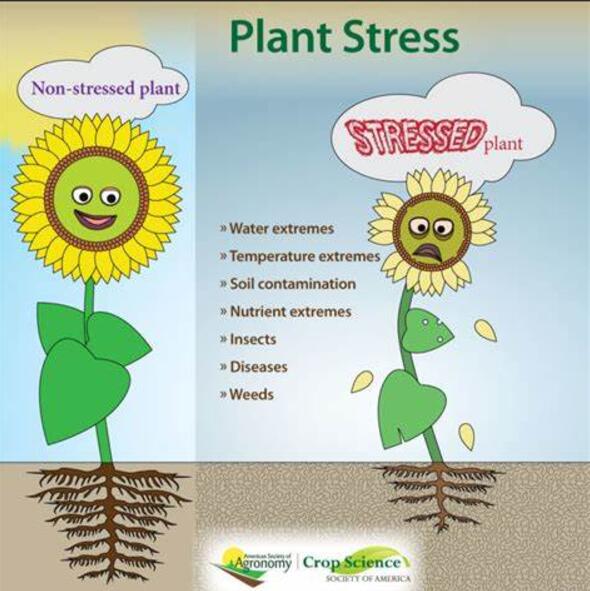Ameliorating drought resistance in Arabidopsis and alfalfa under water deficit conditions through inoculation with Bacillus tequilensis G128 and B. velezensis G138 derived from an arid environment
IF 6.8
Q1 PLANT SCIENCES
引用次数: 0
Abstract
Drought stress is a critical factor limiting plant growth and agricultural productivity, causing significant physiological and biochemical disruptions. This study addresses the gap in research on enhancing plant drought tolerance through plant growth-promoting bacteria (PGPB), focusing on two Bacillus strains, B. velezensis and B. tequilensis, isolated from the arid soils of Qinghai province, China. Both isolates have shown growth-promoting potential but their role in improving drought tolerance, especially in forage crops like alfalfa, has been understudied. The research firstly identified both isolates with phylogenetic trees based on 16S rRNA genes and evaluated their growth-promoting abilities. Then pot experiments were conducted to assess the physiological, biochemical, and gene expression responses of Arabidopsis or alfalfa inoculated with these isolates under drought conditions. Results revealed significant improvements in shoot and root growth, biomass, and chlorophyll content in inoculated plants under drought stress. Additionally, the isolates enhanced antioxidant enzyme activities (SOD, POD, and CAT) and reduced oxidative stress markers (H₂O₂, O₂⁻, and MDA), while promoting the accumulation of osmolytes like proline and soluble sugars. Moreover, inoculated plants showed upregulated expression of key drought-responsive genes, such as MsWRKY8 and MsNCED1, indicating enhanced drought tolerance at the molecular level. This research underscores the potential of these Bacillus isolates as a basis for developing eco-friendly biofertilizers to boost agricultural productivity in drought-prone regions.
求助全文
约1分钟内获得全文
求助全文
来源期刊

Plant Stress
PLANT SCIENCES-
CiteScore
5.20
自引率
8.00%
发文量
76
审稿时长
63 days
期刊介绍:
The journal Plant Stress deals with plant (or other photoautotrophs, such as algae, cyanobacteria and lichens) responses to abiotic and biotic stress factors that can result in limited growth and productivity. Such responses can be analyzed and described at a physiological, biochemical and molecular level. Experimental approaches/technologies aiming to improve growth and productivity with a potential for downstream validation under stress conditions will also be considered. Both fundamental and applied research manuscripts are welcome, provided that clear mechanistic hypotheses are made and descriptive approaches are avoided. In addition, high-quality review articles will also be considered, provided they follow a critical approach and stimulate thought for future research avenues.
Plant Stress welcomes high-quality manuscripts related (but not limited) to interactions between plants and:
Lack of water (drought) and excess (flooding),
Salinity stress,
Elevated temperature and/or low temperature (chilling and freezing),
Hypoxia and/or anoxia,
Mineral nutrient excess and/or deficiency,
Heavy metals and/or metalloids,
Plant priming (chemical, biological, physiological, nanomaterial, biostimulant) approaches for improved stress protection,
Viral, phytoplasma, bacterial and fungal plant-pathogen interactions.
The journal welcomes basic and applied research articles, as well as review articles and short communications. All submitted manuscripts will be subject to a thorough peer-reviewing process.
 求助内容:
求助内容: 应助结果提醒方式:
应助结果提醒方式:


